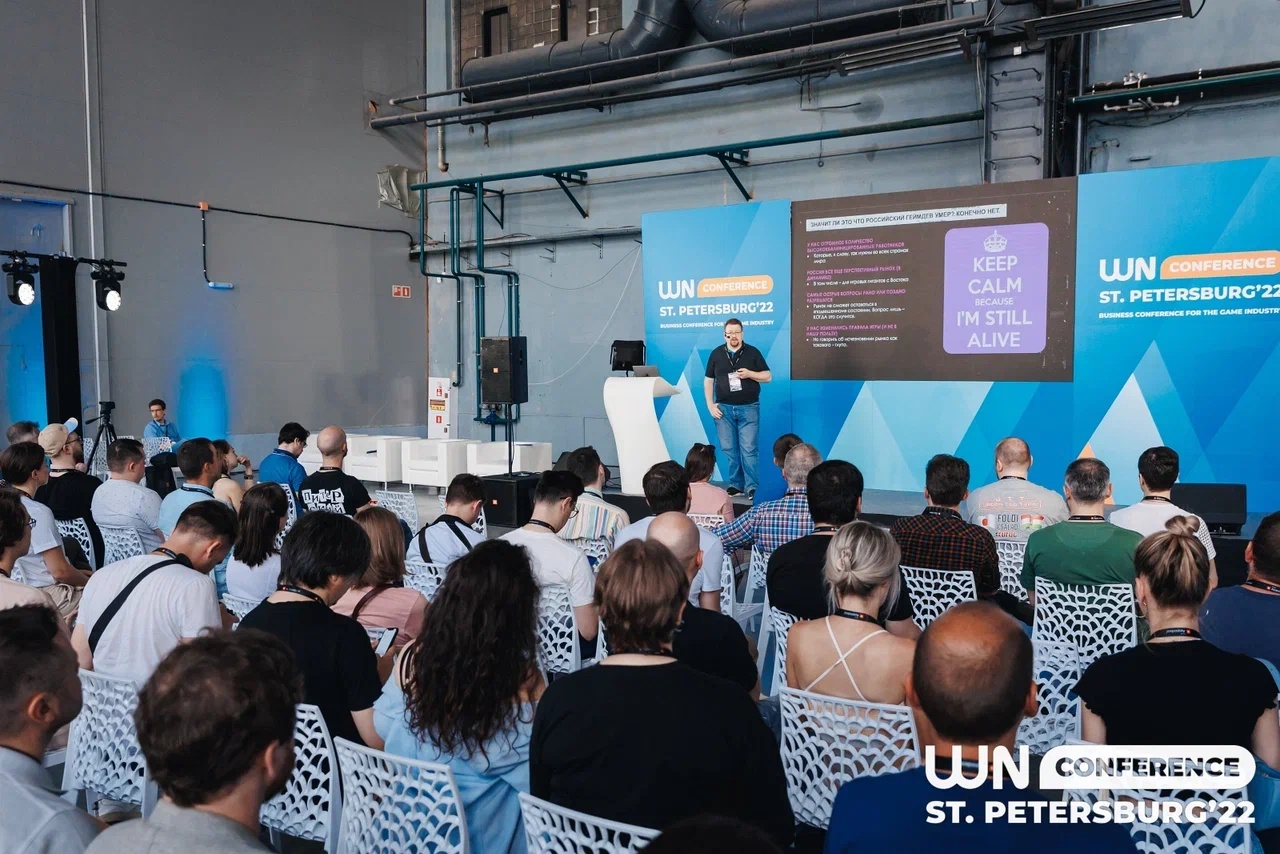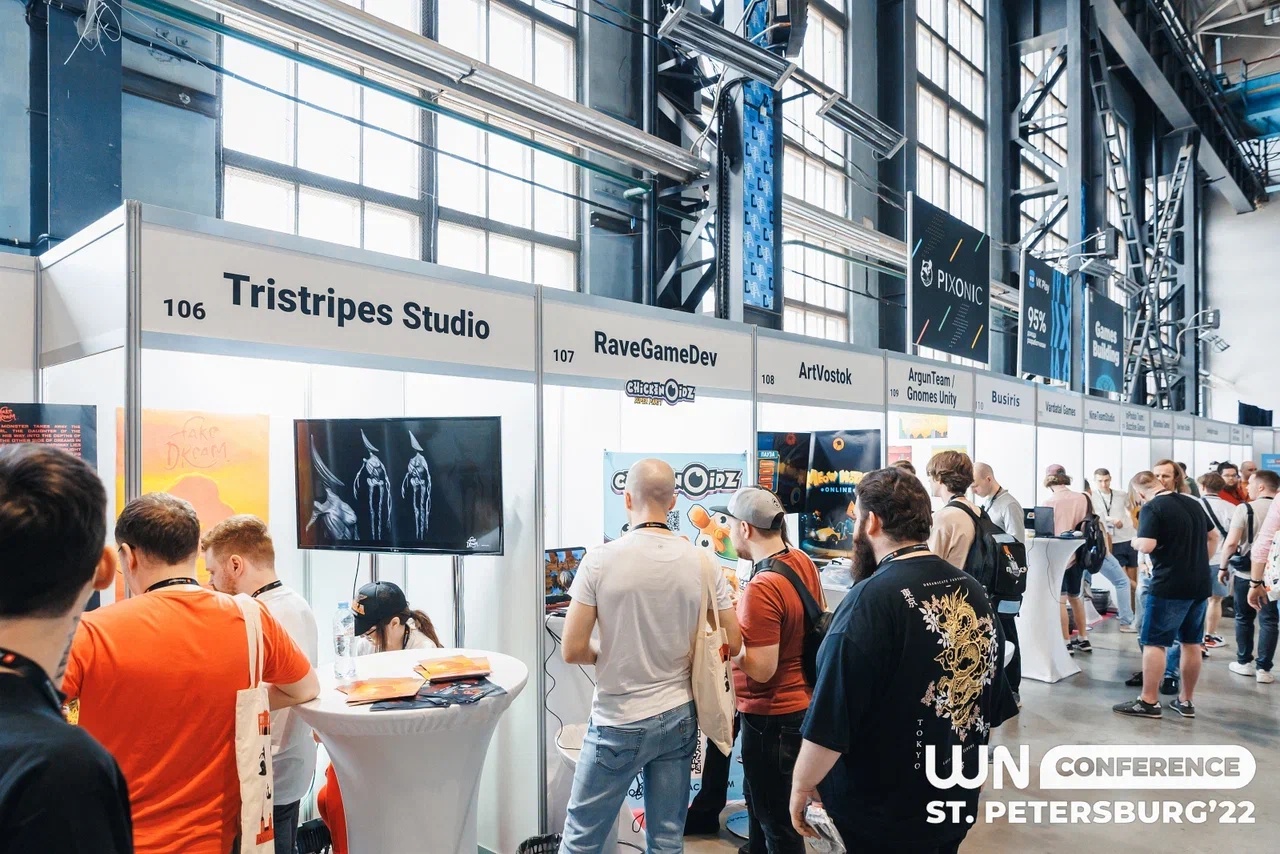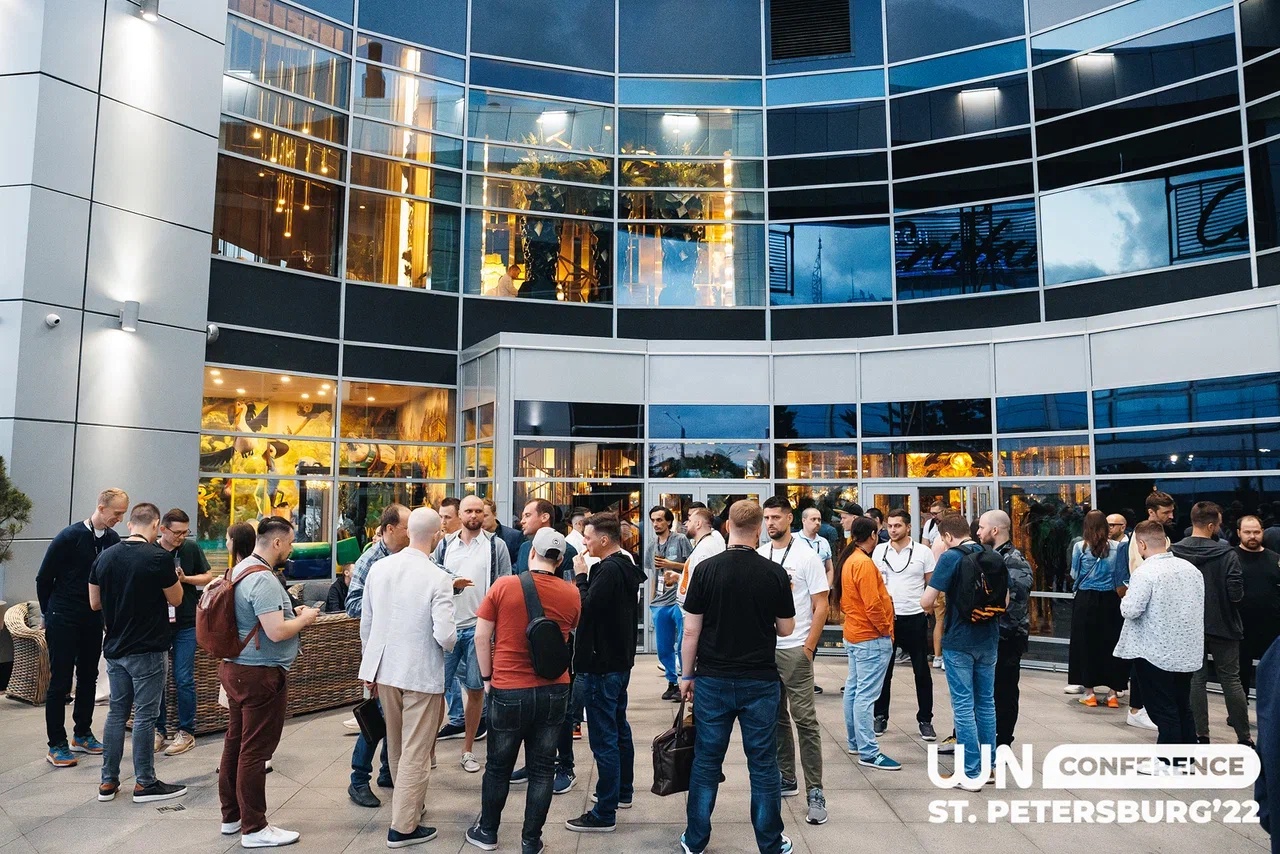It's too early to shout “womgla”: thoughts about the industry after WN St. Petersburg’22
On July 6, the WN Gaming business Conference ended in St. Petersburg. After attending the event, the editor–in-chief App2Top.ru he shared his thoughts on the state of the domestic game development.
If we count the informal part, the WN lasted three days. It was three days of active networking with representatives of those companies that are still working in Russia and with Russia.
Officially, there were few colossi of development. Despite the huge local teams, they are afraid to shine in their native region as sponsors or investors.
Are they really all leaving, closing their LLC and firing employees who do not agree to relocation? It’s difficult to talk about it now. I would like to say that no. I know only one such story so far.
Contrary to the current information field, there was no decadent spirit at the conference. Communicating with developers, top managers and team owners, I kept catching myself thinking that no one was whining, tearing their hair on their head. On the contrary, everyone is in a good mood.
Most, of course, admit that it has become more difficult, that new challenges have appeared, and it is not clear in all cases how to respond to them. But this does not prevent them from maintaining an optimistic attitude.
As one indie developer noticed in a conversation with me: it has always been so. The gaming industry is not an easy niche. As for game development in Russia, it has always been a work in spite of.
Therefore, the “crying of Yaroslavna” that is being heard here and there about the new “womgle” is at least premature. There is a crisis, it is obvious. However, people continue to work, make games, earn money and even think about new opportunities.
Moreover, I am sure that not everyone would agree to call the current time exceptionally difficult. Some of the companies initially focused on the Russian market are now seeing an increase in their indicators. And I’m not talking about VK, but about smaller players.
On the other hand, we regularly hear about layoffs. But here it is important to understand: six months ago there was talk of a shortage of professional staff and, in general, a shortage of people, that the market is overheated, salaries are overstated.
In a sense, the current crisis has played a plus here. The salary race has stopped. The fact that “there are no people” is no longer being talked about either.
As an employee of a very successful St. Petersburg studio told me, their general literally rubbed his hands after learning about the number of personnel that had appeared on the labor market recently.
Another source involved in independent development noted that now is the best time to hire professionals. He also said that many newly dismissed employees find work, as a rule, in a week and a half.
However, not everyone agrees with this position. One of my interlocutors, who is closely monitoring the situation on the labor market, said that truly valuable personnel are either set up for relocation, or have already been dismantled.
He also notes that it is impossible to talk about a large number of vacancies. Companies have now either put the recruitment on pause or have taken up the so-called optimization altogether.
Plus, the one-time appearance of a large number of specialists hit the work with junes. The market’s interest in young and inexperienced personnel has dropped significantly. Perhaps this could hit the educational market.
Another problem is no less urgent — the loss of investments. Many teams were left without Western money, some market participants had failed deals, someone had a broken contract.
But here, as it turned out, there are possible options.
- Firstly, funds with Russian roots do not refuse to support local products, although, most likely, they require registration of a foreign legal entity. The same applies to publishers (while some of them have begun to offer assistance in its design).
- Secondly, Russian developers may receive money from the Middle East. Currently, at least one team with support from Dubai operates in the domestic market.
- Thirdly, the state financing of the industry has appeared in Russia, which is supervised by the Institute for the Development of the Internet.
No one says “go and take it.” Raising funds within any of these institutions is an extremely complex task.
Besides, not everyone is ready to work within these options. Most of them had a different scheme: the money goes to a Western legal entity, and then to a Russian LLC.
And now this scheme is working with failures. As a result, a lot of Russian companies in connection with the sanctions do not solve the problem with the transfer of money from abroad. Therefore, they have nothing with which to pay money to employees. They are on the verge of closing.
No one knows how many companies that have already closed because of this.
Well, the cherry on the cake: foreign legal entities of domestic studios in even seemingly secure jurisdictions can be banned from conducting transactions to Russia at any time. In this case, they will really have to either fire people, or pull off completely exotic schemes with the transfer of funds first to conditional Kazakhstan, and then to Russia.
But it is important to understand here: despite all this, some options still remain, which was not the case either in the crisis year 1998 or in the crisis year 2008.
Then there was no choice. Today it seems to be there.
At the developer exhibition, representatives of various teams confessed to me: “the game won’t work, I’ll get a job“, “we lost the investor, but there are options“, “this game won’t be successful, it’s okay, we have another one in development.” Even one of the speakers, recently forced to reduce the team due to the freezing of the project, quietly and calmly announced the launch of a new game.
This speaks, at least, about the healthy mood prevailing in the industry.
By the way, since we touched on the theme of the developers’ exhibition. She made a good impression. It’s about both the number of products and the overall quality level. We even managed to highlight several trends in the editorial office.
- Firstly, it was striking that projects in the Slavic setting began to appear. This has not happened for a very long time (twenty years). This is pleasant, unexpected and most likely due to the success of the Black Book.
- The second trend worth noting is a large number of horror movies. And not necessarily in the first person. For example, there was one isometric project in the spirit of the classic Alone in the Dark.
- The third trend partially overlaps with the second. Among horror and story games, there were often stories, one way or another devoted to psychological problems. How to explain such attention to the topic is difficult to say. Maybe the zeitgeist.
In total, about 90 teams participated in the exhibition. And, since we started talking about numbers, 800 people visited WN. This is less than usual, but still not so little for a time of crisis.
Looking at the two-story restaurant packed to the brim with representatives of the domestic gaming industry, where the party was held on the first day of the conference, it was impossible not to recall with irony the recent material on DTF with the headline “Let’s assume that there is no game dev in Russia now.”
After all, there is where he will go. It’s another matter how many trials he still has to face.



